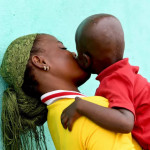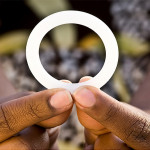Pharmaceutical giant GlaxoSmithKline (GSK) has made a $97 million commitment to new initiatives that aim to improve research, development and access to antiretroviral drugs for children in sub-Saharan Africa.
GSK announced on July 14 plans to spend up to $80 million during the next 10 years for the “Positive Action for Children” fund to support nongovernmental organizations (NGOs) and other groups working to prevent mother-to-child-transmission and assist AIDS orphans. An additional $17 million fund will focus on developing new pediatric HIV medications.
The initiative will also foster collaboration with other companies and help develop new fixed-dose combination therapies for adults and children. In addition, GSK will expand its voluntary licensing policy to include abacavir (found in Ziagen, Epzicom and Trizivir), which it will license to generic manufacturer Aspen Pharmaceuticals.
More than 2 million HIV-positive children live in Africa—accounting for 90 percent of all children living with virus worldwide—therefore, measures that can target them are vital, Stephen Rea, a spokesperson for GSK, told POZ. While HIV-positive expectant mothers in wealthier countries are screened during pregnancy for a range of illnesses and given medicine that can almost guarantee that the child will not contract HIV at birth, in certain parts of Africa that isn’t the case.
“The problem is that in sub-Saharan Africa the health care infrastructure ranges from basic to nonexistent,” Rea said. “A huge number of mothers do not see a doctor during any time of their pregnancy, and even if they are tested, there may not be available drugs to guarantee that the risk of transmitting the virus to their child is minimized.”
Motherly Love
GlaxoSmithKline launches the “Positive Action for Children” fund to support HIV-positive children in sub-Saharan Africa and reduce mother-to-child transmission.





Comments
Comments